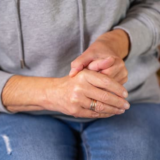Tips for Travelling
Things to remember | Plan your trip | Packing for your trip | Medical preparation | Travel insurance | Coming home | Extra tips and references | Where to get help | How we can help | More to explore | Download PDF
Things to remember
- Travelling and exploring new places is a fun and exciting part of life
- Sometimes your health condition can have an impact on your ability to travel or your travel experience
- There are things you can do to manage this so that you can get out and explore the world!
Travelling can be great fun, but if you have a musculoskeletal condition (e.g. arthritis, back pain, ankylosing spondylitis), it can also cause anxiety and stress. When you’re out of your daily routine it can be difficult to know how your condition will respond and how it may affect your trip.
Here are some tips and tricks to help you manage your condition so you get the most out of your trip and have a fantastic time.
Plan your trip
Take time to plan your trip carefully. Being proactive before you go away gives you the opportunity to plan around your condition, rather than have your condition disrupt your trip. You know how your condition affects you – using this information when planning will put you in control.
Give yourself plenty of time to pack (this can be exhausting!) and to finish up any extra tasks or household chores you need to do well before the day you leave.
Rest up. Even though you may be going on a holiday for rest and relaxation, try and get some rest before you leave. This will help ensure that you don’t fall in an exhausted heap when you arrive at your destination. You’ll have more energy and less pain so that you can do the things you want to do.
Make your itinerary realistic. When you’re on holiday it’s tempting to pack as much as possible into every single day, however this can often lead to increased pain and fatigue. Plan rest days, or less active days and create an itinerary that’s flexible depending on how you feel each day. It’s better to do less and prevent flare-ups than do too much and end up unwell.
Take into account things such as the times you’ll be travelling – especially any long haul flights. If you tend to have more pain in the morning try to avoid travelling then. It’s not always possible, but keep it in mind when booking.
Minimise long journeys where possible. Living in Australia we know long distances are a part of life, whether travelling overseas or just within Australia. However where possible try to avoid packing your itinerary with long train, car or bus journeys. Make a list of the key sights you want to see and plan your travel around those – don’t try to do everything! If you’re travelling for long periods, take rest stops when possible and consider stopovers for long flights. If you’re travelling by plane or train ask for an aisle seat and take strolls up and down the aisles. You can also perform leg and foot stretches and other gentle exercises while seated.
Inform the airline of your medical condition. When booking your flights, let the airline know you have a medical condition. With advance notice, they should be able to:
- provide you with wheelchair assistance and early boarding, if necessary
- have airline personnel carry your luggage for you and/or lift it into the overhead bin for you
- accommodate you with special shuttles and elevator platforms for boarding.
Get your clearances. Check your airline/s website to find out which medical conditions require a ‘fitness to fly’ clearance and if you need to complete a travel clearance form prior to your flight.
Talk with the transport operators before you leave. Contact your transport operators (both in Australia and overseas) before your journey to see what assistance and services they can provide. This goes for all planes, trains, coaches, ships, boats, cabs – basically any form of transport operated by someone else. Let them know if you require help and if you have any mobility aids. Have the specifications of your mobility aids handy in case they need this information. Doing this before you go means that the operators can be ready for your arrival and save you any potential stress or inconvenience.
Booking accommodation. When choosing your accommodation always consider walking distance to other services, the number of stairs and the availability and location of lifts. Make sure you can drop your luggage off at your hotel if you arrive early (you don’t want to carry heavy bags any longer than necessary!). Consider booking accommodation that has a heated pool or a spa – if not for the entire trip, at least for some of your trip so that you can exercise or relax in warm water to loosen sore muscles and ease painful joints.
Packing for your trip
Pack light. Packing can be one of the hardest parts of travelling – what to take, what to leave at home – so if in doubt, leave it out! Lifting heavy bags on and off trains, buses and through airports increases your risk of injury and fatigue. When you travel you also end up carting your luggage around more than you may realise. So packing light is essential. There are numerous websites, articles and blogs that can give you tips and advice on packing for a trip – including how to pack clothes that are versatile so you don’t have to pack every item of clothing you own, to packing shoes, accessories and toiletries.
Use lightweight luggage if you have it. If you’re buying new luggage, think lightweight and durable, and look for luggage that has good wheels and handles that allow for easy manoeuvrability. A suitcase that you can push rather than pull places the load squarely in front of you and means you don’t have to twist your wrists. If you don’t own lightweight luggage, see if you can borrow some from your family or friends.
Don’t forget to pack any special equipment or aids that help make life more comfortable such as:
- special pillows – e.g. a horseshoe pillow that minimises stress on your neck or a lumbar pillow that reduces back pain from sitting too long
- hot/cold packs
- orthotics (shoe inserts), splints or braces.
Separate your medication. Keep your medication in separate pieces of luggage to ensure you don’t lose it all should a piece of luggage become lost or stolen. Only carry enough medication that you need for your own personal use. Pack in your hand luggage any medication you may need access to quickly so you can get to it when you need to.
If your luggage is stolen contact your travel insurer for help. It’s a good idea to take your prescription with you in case things do go missing or you decide to stay away longer. Plan ahead for these situations and speak with your doctor about what to do in a ‘worst case scenario’.
Organise your medications. Being away from your usual routine can make it easy to forget to take your medication/s at the appropriate time. If you take medications every day consider using a pillbox with separate compartments for each day (but keep the original packaging with you). More information on travelling overseas with medication and medical devices can be found on the Therapeutic Goods Administration website.
Check size restrictions on luggage and any mobility aids. Any restrictions on mobility aids should be checked with your travel agent, airline or other transport operators. This may not be the same across the board – so check all of them, both in Australia and overseas.
Medical preparation
Get advice well in advance. Ensure regular blood tests and doctor visits are conducted before you leave. Discuss any concerns you have about travelling with your doctor (e.g. whether you need to adjust your medication schedule if travelling to a different time zone).
Vaccinations. If you’re travelling overseas, research any vaccinations that may be required. Some vaccines should be avoided if you have an autoimmune condition, or you’re taking medications that suppresses your immune system. Check with your rheumatologist before receiving any vaccines. Check out the Smart Traveller website for more information about health checks and vaccinations.
Make sure that your medication/s is legal where you’re going. You can do this by contacting the relevant embassy. A list is available at the Smart Traveller website. Carry a letter from your doctor listing all the medication you’re taking, dosage and what it‘s for, as well as the contact details of your doctor. Keep medications in their original packaging, or if you’re using a pillbox keep the packaging with the pillbox.
For more information about medications and travelling you can also visit the International Association for Medical Assistance to Travellers website.
Stock up. Make sure that you have enough medications (for your own personal use) to last until you return home. You may not be able to get the same medications easily elsewhere – especially if you’re overseas.
Store your biological medications properly. If you’re taking biological medications (biologics or biosimilars), they may need to be stored at a certain temperature in a specially designed travel wallet. Seek advice from your rheumatologist and the pharmaceutical company about this.
Check with your airline/s to see if they can assist you, for example with ice for the travel wallet, or placing your medication in the airplane’s fridge.
Make sure your container is clearly labeled with your name and contact information or give them your boarding pass. And make sure you don’t leave your medication on the plane!
Don’t place your medications in with your checked luggage. The baggage compartment gets extremely cold while the plane is in flight and your medication may freeze and be ruined.
Fridges away from home. Once you’re at your destination you should be able to use the mini-fridge in your hotel room to store your biologics. You may need to check the fridge is adjusted properly to a suitable temperature. Also keep in mind that in some countries the power in a hotel room turns off when you leave the room. Ask the hotel staff upon arrival and explain that you need to keep your medication refrigerated at all times.
Travel insurance
Know what you’re covered for. You can get travel insurance if you have a pre-existing condition such as arthritis, but it’s important that you understand exactly what your cover specifically provides, and whether it’s adequate for your needs. Different types of travel insurance will have different limitations on what’s covered, so shop around. A medical declaration form may be required in some instances. For more information check out our information on Travel insurance for people with a chronic illness.
Coming home
Rest up. After your trip, factor in a day or so to unpack and rest before leaping back into your daily schedule. If you had to reschedule any medical appointments while away or you have symptoms that need attention, contact your medical team.
Extra tips and references
Getting around airports. Websites for all Australian international airports and domestic terminals have accessibility information, as do the individual airlines.
Give yourself plenty of time. If you have extra equipment, make sure you give yourself plenty of time to make flights and connections, as well as to load your luggage. That way you’re not rushing, which leads to stress and anxiety. Rushing can also make you push yourself too hard, and lead to increased pain and fatigue.
Choose your meals carefully. Most airport and rest stop food choices are high-fat, high-salt, highly processed foods that promote inflammation. Carry healthy snacks, drink plenty of water, and drink alcohol and caffeine in moderation.
Check out the blogs of other travellers with special needs. Stories of other people who’ve visited the places you want to go to and who have accessibility needs are often a great resource to help you plan your journey.
Ask for help. However you’re travelling – plane, boat, coach, train, car – contact your travel agent or transport provider/s well in advance of your trip and let them know if you have any special needs or mobility issues.
Take it easy and have a great time! Remember your trip is meant to be fun. Travel can be associated with both physical and mental stress that can be magnified if you have a health condition that causes you pain. So when you’re planning your trip, factor in a plan B – just in case your original plan needs to be altered to allow you time to rest or take it easy. For example if you’d planned to do a walking tour of the place you’re visiting, look into alternatives such as hop on/hop off bus tours, or riding a bike. Build enough flexibility into your holiday to allow for these alterations so that you’re not constantly stressed about staying on schedule.
By planning your trip carefully, being flexible with your schedule, and taking your condition into account, you can have a fantastic holiday.
So get out there and enjoy yourself!
Where to get help
- Your doctor
- Musculoskeletal Australia
National Arthritis and Back Pain+ Help Line: 1800 263 265
How we can help
Call our Help Line and speak to our nurses. Phone 1800 263 265 or email helpline@msk.org.au.
We can help you find out more about:
- arthritis and musculoskeletal conditions
- ways to live well with these conditions
- managing your pain
- upcoming webinars, seminars and other events.
More to explore
- RACV | 13 72 28
- Smart Traveller
- Therapeutic Goods Administration
- Department of Human Services
- International Association for Medical Assistance to Travellers
Download this information sheet (PDF).
This information was made possible through a grant from the RACV Community Foundation.















